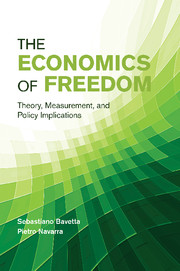6 - Autonomy Freedom and Redistribution
from II - AUTONOMY FREEDOM AND THE WELFARE STATE
Published online by Cambridge University Press: 05 July 2012
Summary
INTRODUCTION
Income inequality is one of the crucial problems associated with the capitalist model of economic organization, since it is an unescapable and largely disapproved consequence of capitalism. Since capitalism allows for inequality – so goes the received wisdom – then it is important to put in place mechanisms to control it. However, international surveys show remarkable differences in the ways inequality is perceived across countries. These surveys cast doubt on how general the received wisdom is and suggest that simplistic redistributive policies are unlikely to be optimal. In this chapter, we analyze the determinants of people's preferences toward income redistribution and their economic consequences. In particular, we argue that individuals' attitudes toward redistribution depend upon the extent of freedom people enjoy.
Despite the effort devoted to the analysis of individuals' preferences for redistribution, freedom has never been conceived as a potential driver in shaping these preferences. Yet, as we argue in this chapter, freedom is a key causal antecedent of people's preferences toward redistribution. Recognition of the role of freedom is therefore crucial in designing optimal redistributive policies.
The sense in which freedom sheds light on individuals' preferences for redistribution can be illustrated by considering their trade-off with social mobility: The greater the perception that individuals are mobile in society, the lesser the preference for flattening income differences through redistributive schemes (Piketty, 1995). However, this trade-off is qualified by the perceived fairness of the process through which social mobility occurs namely, the extent to which outcomes are under a person's volitional control rather than be dependent upon privileges given by third-party interventions or luck.
- Type
- Chapter
- Information
- The Economics of FreedomTheory, Measurement, and Policy Implications, pp. 122 - 153Publisher: Cambridge University PressPrint publication year: 2012



